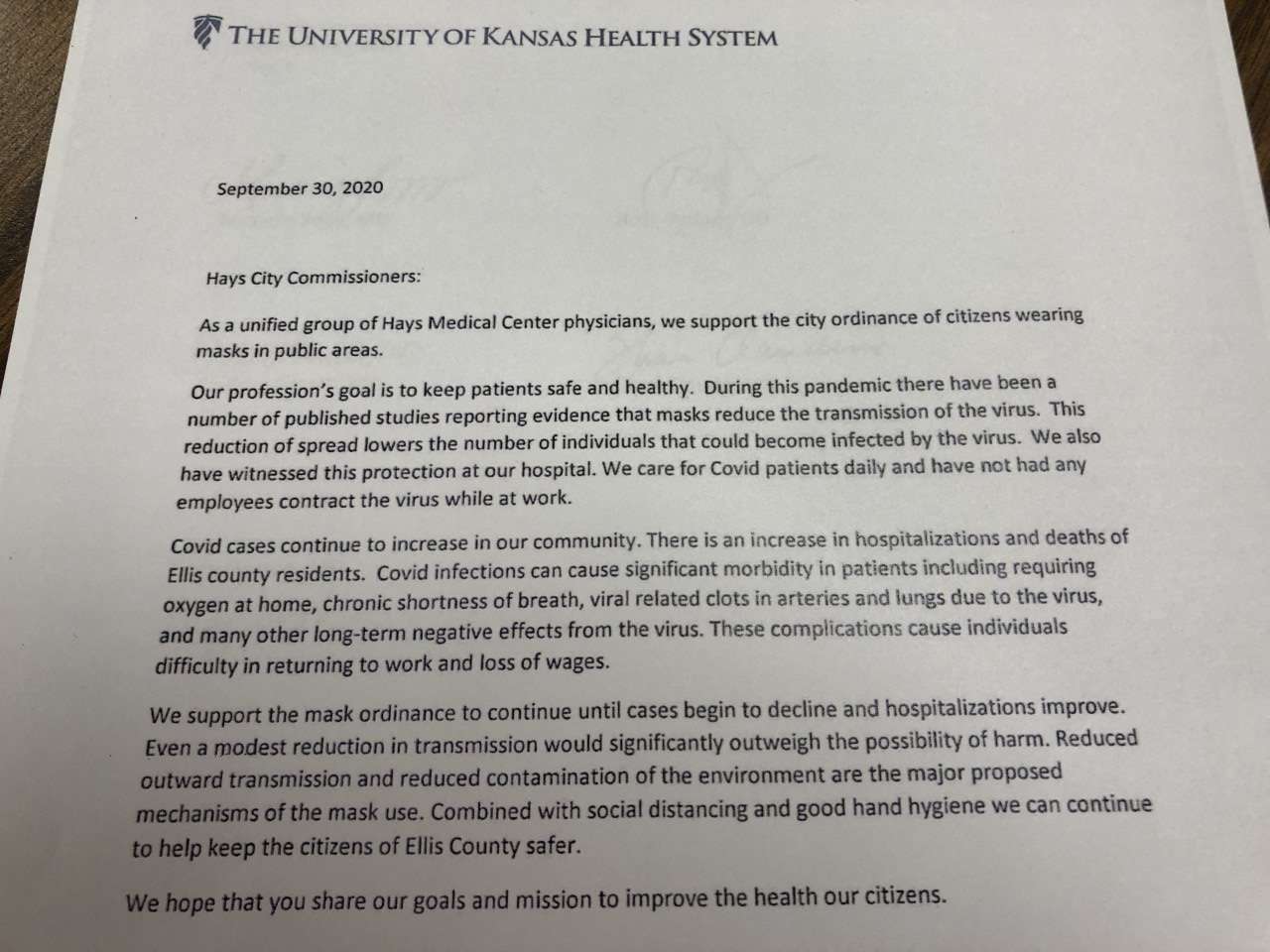By BECKY KISER
Hays Post
"It will eventually get to you. That's the way a virus works."
That's what Eddie Herrman, HaysMed President/Chief Executive Officer, recently told a group gathered at the Smoky Hill Country Club for the Hays Chamber's monthly luncheon.
"COVID in itself has been around a long time. You've probably had some fashion of COVID if you've ever had bronchitis or pneumonia," he said. "COVID is a type of lung virus you can get, a weird variation that can have long-term effects on the heart and the ability to breathe."
An average of 64 tests for coronavirus is ordered every day at HaysMed.
"We really don't do any asymptomatic testing. Of the 64 people coming in, 50 to 60 percent actively have symptoms," Herrman said. "The others are tests for COVID before you have any type of procedure with us. It allows us to keep our physicians and our staff safe."
HaysMed has the ability to do some rapid testing, getting results in one to two hours.
Currently, HaysMed is testing patients at least 48 hours ahead of their procedures.
It takes at least 12 hours to get those results back, and there needs to be time allowed for retesting if a mistake is made or something goes wrong.
"Apparently, if we were an NBA or NFL team, or if you're one of the Power 5 schools for football, rapids are not a difficult thing to come up with.
"But if you're caring for patients in a hospital, it's become very difficult to get these," Herrman frowned.
Rapid tests are based on an allocation with multiple different platforms and shortage for medical facilities is nationwide.
At the beginning of the pandemic, HaysMed received about 400 rapid tests per month, according to Herrman.
In the past month, HaysMed got just 150 tests "and they won't even guarantee we'll get any more for the following month."
"We need this for people who are pregnant, for people having emergency surgery and urgent procedures, as well as anything that's going to aerosolize, such as a bronchoscopy to go into your lungs — that's when the virus becomes the easiest to get."
On Monday, Gov. Laura Kelly announced Kansas is to get 870,000 rapid COVID-19 tests from the federal government over the next three months to boost testing in potential hot spots.
"I can tell you every time somebody's had a wedding that had 300, 400 or 500 people at it, and they had a dance and they had an open bar," Herrman said, "because we see our rise that following week to two weeks."
"You can tell who's not masking, who's not social distancing."
None of the 1,500 HaysMed employees nor the University of Kansas Health System's 10,000 workers have contracted coronavirus while on the job, according to Herrman.
"It's always been from somebody in the home or in the community.
"We're pretty confident as a healthcare institution that masking works.
"We are strict. We are diligent. You don't come into our facility unless you've had your temperature taken and you have a mask on. We social distance everyone. We're washing our hands diligently."
While the community has been very supportive of the hospital, Herrman said, he knows there's a desire for more public information. "We see that on social media. We're starting to put more data out there."
As of Tuesday, HaysMed had 19 inpatients. Herrman said fewer than half of the patients are from Ellis County.
HaysMed is the largest tertiary healthcare center in western Kansas. People from ages 28 to 102 have been admitted for COVID.
"For us, COVID isn't here just in Hays or Ellis County. For us, COVID is in western Kansas. If they can't manage the patient, if they need to be intubated, we're the place you come to."
Intubation numbers at HaysMed have been low.
"The story this doesn't tell you is the number of families who've had to make their loved ones' DNRs [Do Not Resuscitate].
"They're not intubated because they're not going to live. They're going to die. ... We're dealing with the sickest of the sick."
There has been a total of seven COVID-related deaths in Ellis County, according to the county health department.
Last Friday, the Hays City Commission voted to extend the ordinance requiring face coverings until the seven-day new case average was five or fewer for 14 straight days.
A letter of support signed by 12 HaysMed physicians was included in the public comments.







